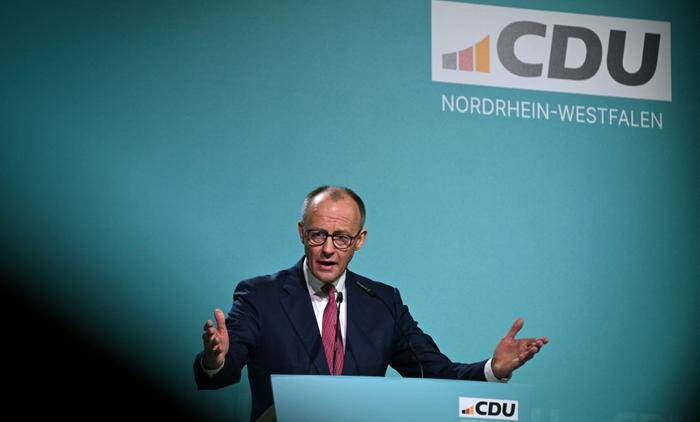Immigration and National Identity Take Center Stage in Germany's Election Campaign
As Germany gears up for its upcoming election, immigration and national identity have emerged as central themes in the campaign. The issue has been a contentious one in German politics, with different parties holding vastly different views on how to address the challenges and opportunities presented by immigration.
The Alternative for Germany (AfD) party has been at the forefront of the debate, with its leaders arguing that Germany's immigration policies have failed and that the country needs to take a tougher stance on border control ¹. The party has gained significant traction in recent years, particularly in the eastern states, where concerns about immigration and national identity are particularly pronounced.
In contrast, the ruling Christian Democratic Union (CDU) party has taken a more nuanced approach to the issue. While acknowledging the challenges presented by immigration, the CDU has argued that Germany needs to maintain an open and welcoming approach to migrants and refugees. The party has also emphasized the importance of integrating migrants into German society and promoting social cohesion.
The debate over immigration has been further complicated by the rise of far-right groups and anti-immigrant sentiment in some parts of the country. The AfD has been accused of perpetuating xenophobic and nationalist rhetoric, which has contributed to a divisive and polarized debate.
Despite these challenges, many Germans remain committed to the idea of a multicultural and inclusive society. A recent survey found that a majority of Germans believe that immigration has had a positive impact on the country, and that migrants have made significant contributions to German society.
As the election campaign heats up, it remains to be seen how the issue of immigration will play out. One thing is clear, however: the debate over immigration and national identity will be a defining feature of the campaign, and will have significant implications for the future of German politics and society.
The AfD has been one of the biggest winners in German politics in recent years. Founded in 2013 as a Eurosceptic party, the AfD has rapidly expanded its platform to include a range of issues, including immigration, national identity, and law and order.
The party's success can be attributed in part to its ability to tap into widespread concerns about immigration and national identity. Many Germans feel that the country's immigration policies have failed, and that the government has not done enough to address the challenges presented by migration.
The AfD has also been successful in exploiting divisions within the mainstream parties. The CDU, in particular, has struggled to develop a coherent and compelling narrative on immigration, which has created an opportunity for the AfD to fill the vacuum.
The CDU has been criticized for its handling of the immigration issue. While the party has acknowledged the challenges presented by migration, it has struggled to develop a clear and compelling narrative on the issue.
In recent months, the CDU has sought to reposition itself on the issue, emphasizing the importance of integrating migrants into German society and promoting social cohesion. The party has also argued that Germany needs to maintain an open and welcoming approach to migrants and refugees.
However, the CDU's efforts to rebrand itself on the issue have been complicated by divisions within the party. Some CDU politicians have argued that the party needs to take a tougher stance on immigration, while others have emphasized the importance of maintaining a welcoming and inclusive approach.
The debate over immigration has had a significant impact on German society. Many Germans feel that the country's immigration policies have failed, and that the government has not done enough to address the challenges presented by migration.
The rise of the AfD has also contributed to a divisive and polarized debate. The party's xenophobic and nationalist rhetoric has been criticized by many, who argue that it perpetuates harmful stereotypes and contributes to a toxic and divisive atmosphere.
Despite these challenges, many Germans remain committed to the idea of a multicultural and inclusive society. A recent survey found that a majority of Germans believe that immigration has had a positive impact on the country, and that migrants have made significant contributions to German society.
As the election campaign heats up, it remains to be seen how the issue of immigration will play out. One thing is clear, however: the debate over immigration and national identity will be a defining feature of the campaign, and will have significant implications for the future of German politics and society.




No comments yet
Be the first to share your thoughts!